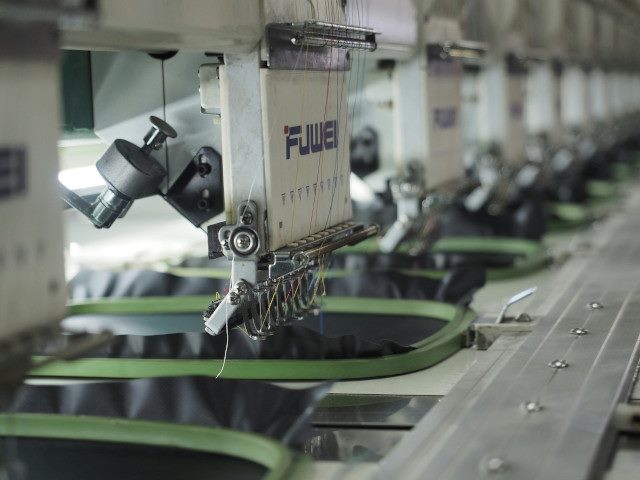Everywhere you look, manufacturing is cited as a leading use case for artificial intelligence (AI) and machine learning (ML), with major manufacturers brought forth as examples. But other than making it yourself, where can you find manufacturing systems and suppliers that take advantage of AI? Here, we look at some of the top manufacturing companies in the AI market.
1. Siemens
Siemens is a Munich-based design and manufacturing company that serves a broad range of industries. The company’s products include Industrial Copilot, which is scheduled to be available this summer. The copilot is a generative AI program based on Microsoft Azure OpenAI Service intended to help make automation engineers more productive by generating code and diagnosing faults. For predictive maintenance, its Semi-Automatic Labeling Tool analyzes sensor data streams. In addition, Siemens is partnering with other companies in the AI market, such as NVIDIA and digital twin technology.
2. IBM
IBM’s Watson is one of the more venerable AI systems, so it’s not surprising that IBM has also been involved in coupling AI with manufacturing. For example, manufacturers, such as SMART Modular Technologies, are using IBM’s PowerAI Vision to help detect errors in the manufacturing process. IBM has also partnered with companies, such as Panasonic and AI systems for semiconductor manufacturing to help Panasonic more efficiently package the components of a chip in a device.
3. Rockwell Automation
The Milwaukee-based industrial automation company produces FactoryTalk Analytics LogixAI, which uses streaming controller data with a machine learning component to make predictions. In addition, the company’s FactoryTalk Analytics GuardianAI supports predictive maintenance by alerting operators when a component needs to be repaired or replaced. Rockwell Automation is also partnering with NVIDIA on digital twin technology and with Microsoft to add Azure OpenAI Service to Rockwell’s FactoryTalk Design Studio, which is intended to help engineers generate code using natural language prompts.
4. GE Vernova
One of the classic manufacturing companies, the former General Electric has since split into several companies. One of these, GE Vernova, based in Cambridge, Massachusetts, focuses on manufacturing power generation equipment. The company has developed Proficy for Sustainability Insights, which is software that uses sensors and machine learning to show how manufacturing facilities can work more efficiently, such as by monitoring the use of electricity, natural gas, water and steam. The goal is to help manufacturers use measurements, such as Scope 1 and Scope 2 carbon emissions, water usage and energy efficiency, as key performance indicators (KPIs).
5. Industry.AI
Based in India, Industry.AI is an independent subsidiary of the Bharat Light & Power Group. The company makes a series of products that bring AI functionality to manufacturing: Orion, which collects and analyzes internet of things (IoT) sensor data; Predict.AI, which predicts failures; Trust.AI, which uses computer vision to look for employee injuries and quality issues; Conserve.AI, which uses IoT sensors to improve building efficiency; Track.AI, for asset management; and Spot.AI, which also provides asset management but provides it using computer vision.
6. NVIDIA
People usually think of NVIDIA in the context of manufacturing the chips used to run AI applications. But the Santa Clara, California-based company also makes AI-based products specifically for the manufacturing industry. NVIDIA Omniverse is a platform of APIs and services that enables developers to build generative AI-powered applications and services for industrial digital twins and automation. In addition, NVIDA is partnering with several other organizations, including Rockwell Automation, Microsoft and Siemens, on digital twin technology. The company also announced Isaac Manipulator and Isaac Perceptor, which are a collection of foundation models, robotics tools and GPU-accelerated libraries that are intended to help improve robots in manufacturing.
7. C3.AI
Based in Redwood City, California, C3’s AI Platform includes a number of components intended for the manufacturing industry. C3 AI Process Optimization helps manufacturers increase production yield and efficiency, and C3 AI Production Schedule Optimization helps develop forecasts and schedule production. C3 AI Reliability is a failure prediction application, and C3 AI Energy Management helps reduce energy use. Its suite of C3 AI Manufacturing Applications also includes C3 AI Inventory Optimization for managing inventory and C3 AI Supply Network Risk for monitoring the supply chain.
8. Mobileye
Mobileye is a Jerusalem-based company that makes computer vision and machine learning, data analysis, localization and mapping technologies for advanced driver assistance systems (ADAS) and autonomous driving. The company’s technology is used in vehicles by various automotive companies, such as BMW, Audi, Volkswagen, Nissan, Ford, Honda and General Motors.
9. AMD
AMD is embedding AI in its chips, which are then used by manufacturers. The company’s fourth-generation AMD EPYC processor, for instance, supports up to 96 cores and manufacturing applications. In addition, the Santa Clara, California-based company’s Versal AI Edge XA adaptive system-on-chip includes an AI engine, meaning it can be optimized for automotive systems and applications, such as forward cameras, in-cabin monitoring, LiDAR, 4D radar, surround view, automated parking and autonomous driving.
10. Hewlett Packard Enterprise (HPE)
Spring, Texas-based HPE brings AI to manufacturing through its HPE’s Aruba Networking Central, which uses machine learning to profile devices connected to the network without having to install software on them. This helps manufacturers protect their networks — including industrial internet of things (IIoT) networks — from intrusion. In addition, the system’s machine learning capabilities can also be used to determine the root cause of performance issues, identify performance issues before they cause problems and optimize radio frequency settings.
